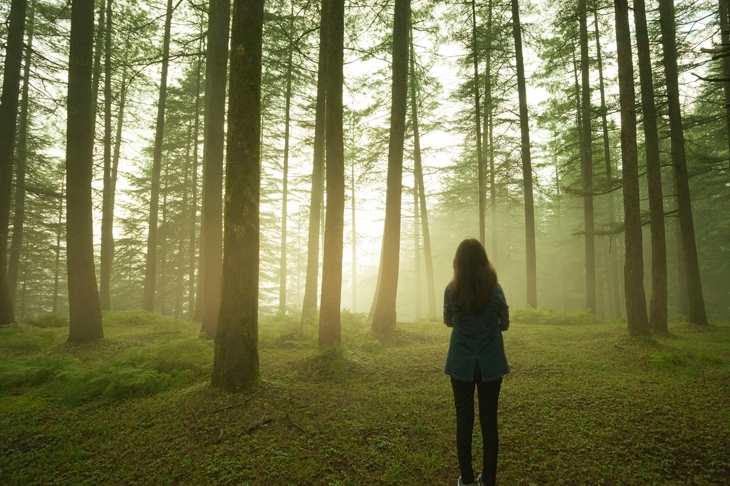Sarah Moss’s concise, claustrophobic sixth novel concerns the perils of family life. The narrator Silvie is a frustrated 17-year-old on holiday in the Northumbrian countryside with her father Bill, a bus driver with an insatiable interest in prehistoric Britain, and her mother Alison, who works as a cashier in a supermarket. They have joined an ‘experiential archeology’ field trip — ‘to have a flavour of Iron Age life’ — run by Professor Slade for a group of his university students.
But Silvie dislikes the scratchy tunic that she’s forced to wear and the small wooden hut she must sleep in because her father insists on authenticity. (The others, meanwhile, are in waterproof nylon tents; the professor puts on tennis socks with his moccasins to prevent blisters.) Bill refuses to add garlic to their foraged meals: ‘Hungry folk want plain food, he said, the corollary being that if you didn’t want “plain food” you weren’t hungry and so shouldn’t be eating in the first place.’
Moss’s canvas is characteristically small-scale. The action takes place within a perimeter of moorland controlled by Bill over a couple of days in the early 1990s — Silvie is terrified to go beyond it; Alison doesn’t deviate from cooking and cleaning at the campsite. At several moments, Silvie fantasises about when she is a grown up and can get away (‘I will go out and buy myself pants in emerald and turquoise and scarlet’).
Moss is very good at building empathy for Silvie through visceral, close-grained descriptions of nature. In one devastating scene, her father and the professor come across Silvie alone, washing topless in a stream. Bill drags her out of the water, calls her ‘a little whore’ and whips her with his leather belt. Throughout, Silvie focuses on ‘the tree between my hands… the impalpable pulse of sap under my palms’, and the pile of dead rabbits, whose eyes are ‘still bright’, that her father has abandoned on the floor. His idea of education poses as self-improvement, but it is draconian and abusive.
Memories of skipping school with Bill to see a 2,000-year-old embalmed body at the Manchester Museum and walking across slippery hilltops holding hands show flashes of a doting father. Now, though, Silvie is caught between seeing him for what he is — ‘a show-off and given to brutality’, who talks about ‘Paki muck’ and being ‘proper native British’ — and how he has conditioned her to think. When Molly, the only female student in the group, tells Silvie that the trip is ‘a lot of boys playing in the woods… they just want to kill things and talk about fighting, why would I take it seriously?’, Silvie’s internal monologue snaps to her father’s defence: ‘Because they are men, I thought, because they’re in charge, because there will be consequences if you don’t. I didn’t see how she could not know that.’
A sinister feeling hangs over Ghost Wall from the first chapter, where we witness a teenage girl sacrificed to a bog by her family, probably on the same spot in Northumbria, many centuries ago. It’s a story that Silvie reads about in one of her dad’s archeology books. ‘People don’t bother to hurt what they don’t love’ is the warped message she learns from it.






Comments